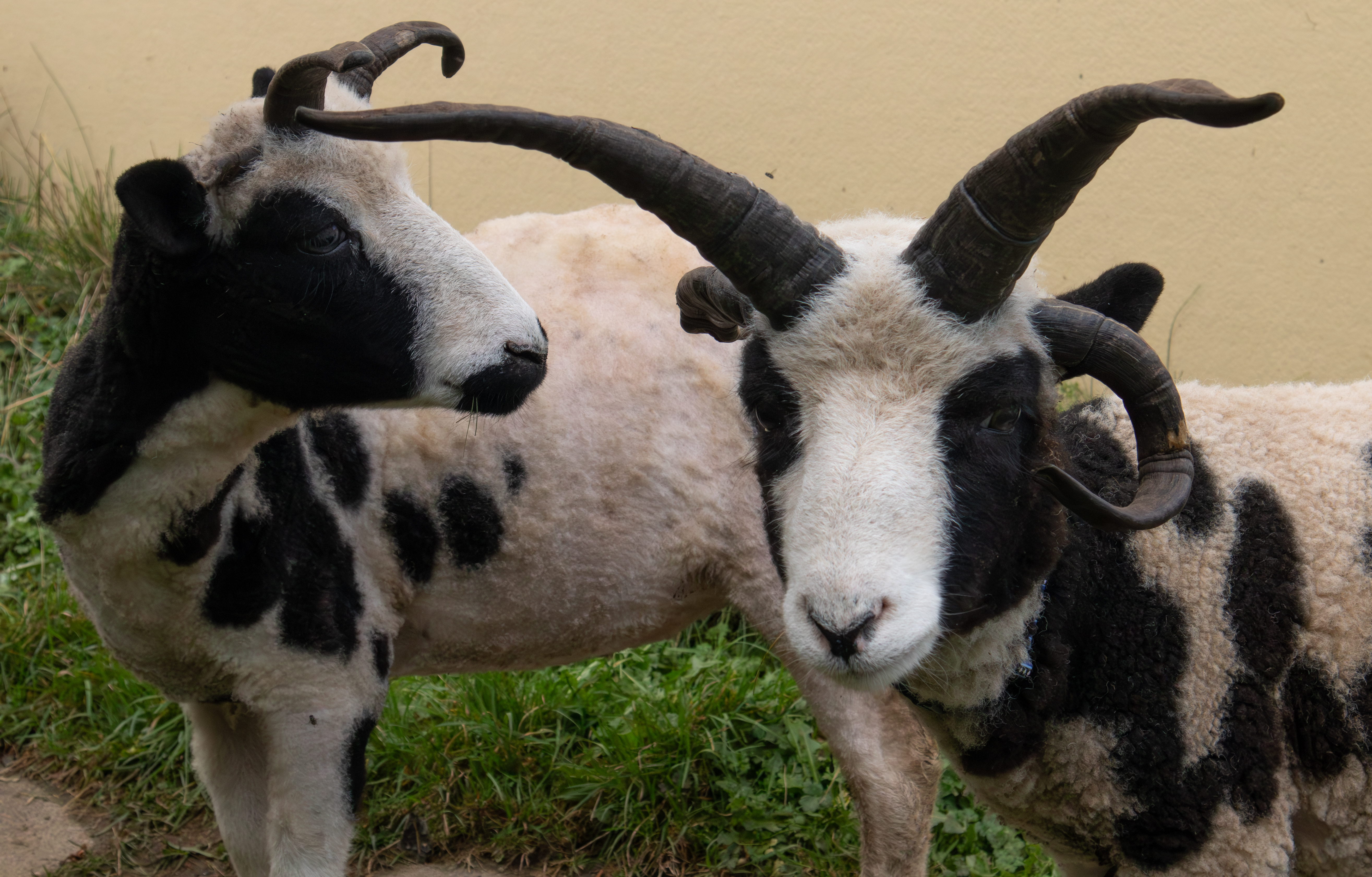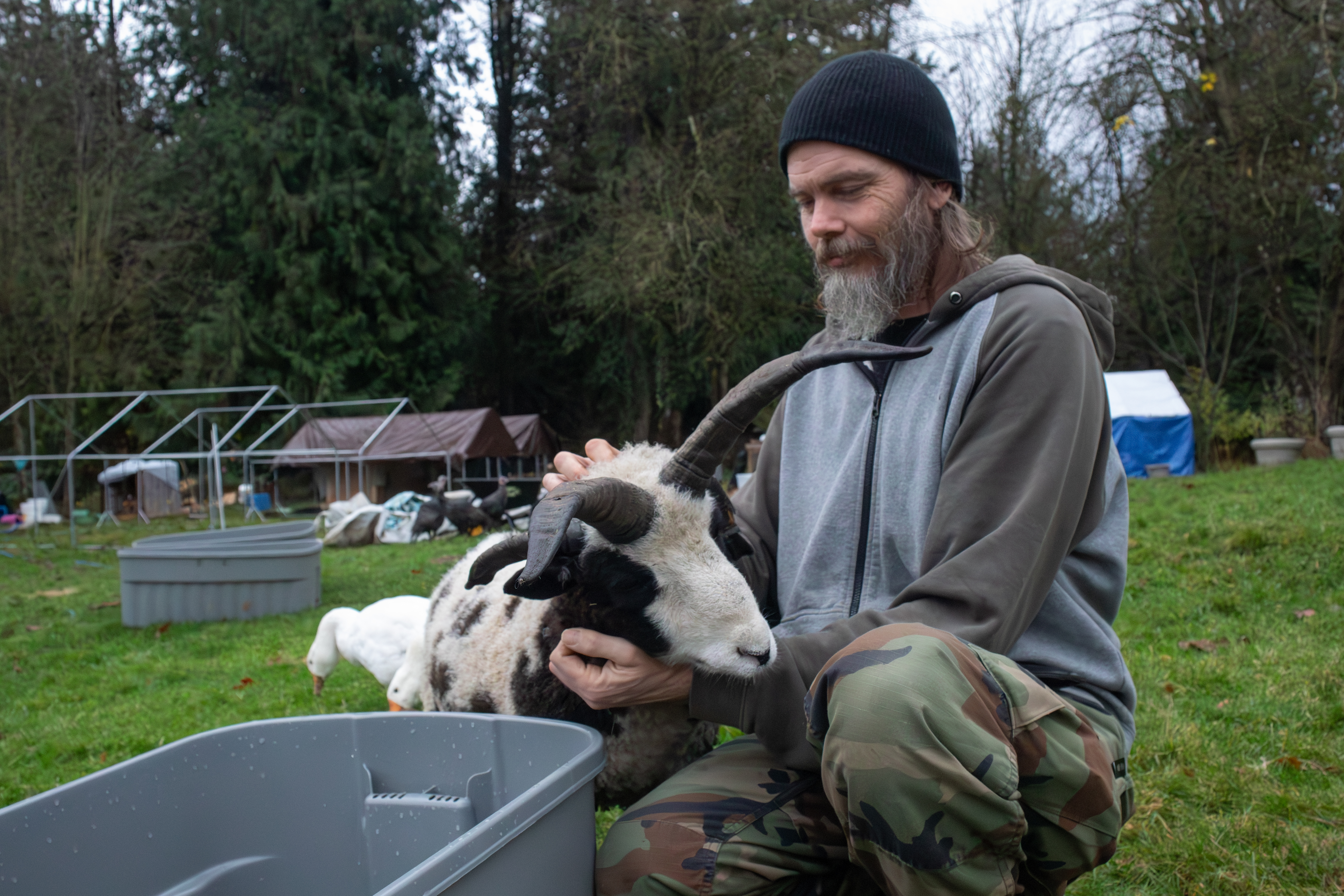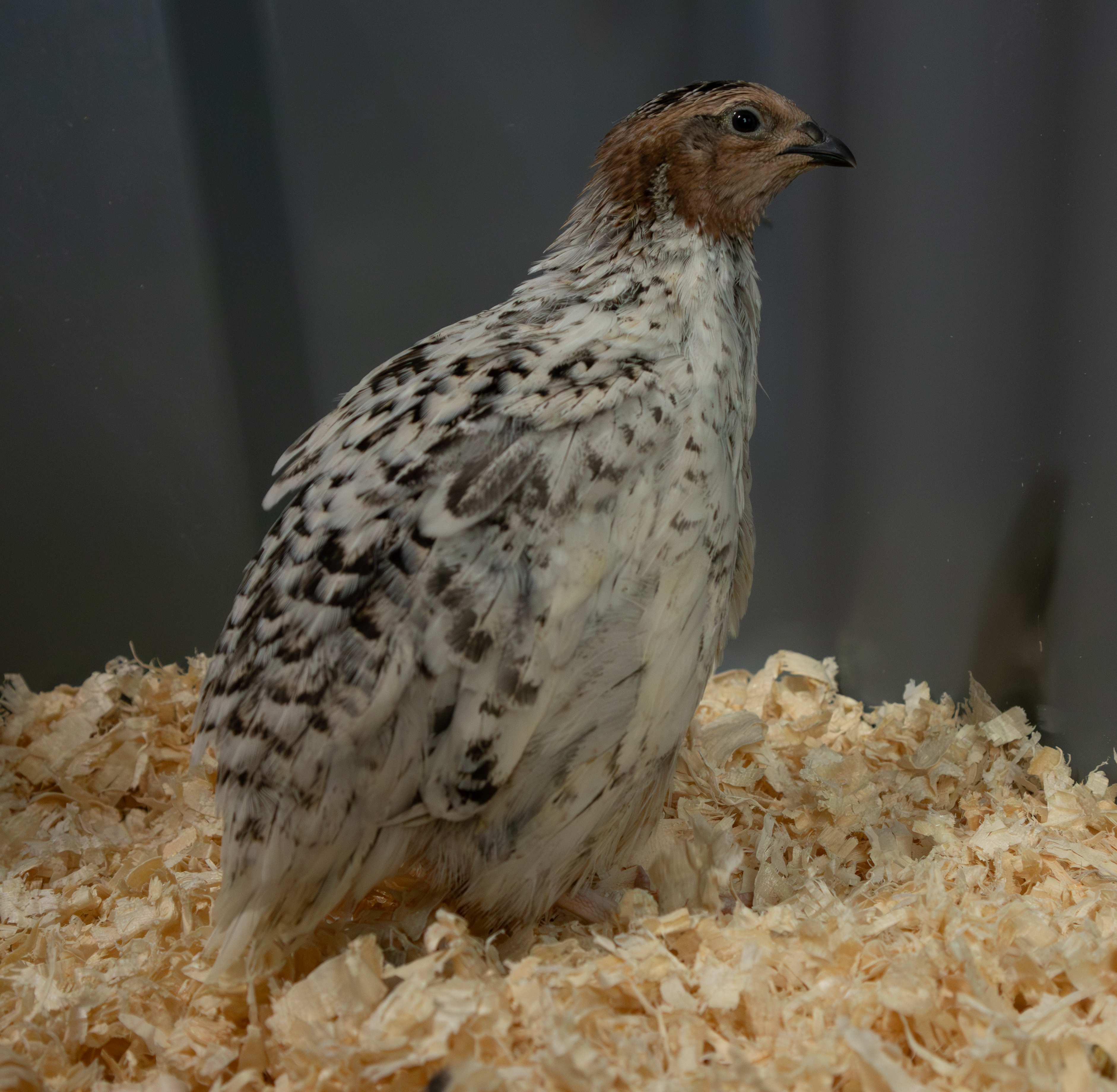JACOB SHEEP

Genesis 30:32 Let me go through all your flocks today and remove from them every speckled or spotted sheep, every dark-colored lamb and every spotted or speckled goat. They will be my wages.
Origin
Jacob Sheep are a unique and ridiculously cute breed of sheep with a mysterious and contested history, possibly beginning in the land of Canaan over 3500 years ago, but more likely as a result of cross breeding between Northern African and Northern European breeds. In more contemporary times the Jacob Sheep with its piebald coat was brought to England by Sir John Byne in the 16th Century and were known as Piebald Sheep until the late 19th Century when they were named after the mythological sheep in Genesis without any significant evidence to corroborate the ancient connection. Wherever Sir Byne acquired this wonderful breed, they are now accepted as a British breed where they were kept by only a few large estates.
Conservation Status
The Jacob Sheep is a rare breed with a conservation status ranging from critical to endangered-maintained in many nations, and fortunately the United Kingdom has enough breeding ewes to elevate their status to Category 6, which removes it from a risk status. In Canada the numbers are still quite low, and efforts are being made by breeders and farms to coordinate and maintain healthy breeding programs.
Status in Canada
In 2016 the largest flock in Canada was held by the Lewinsky farm who acquired four sheep from a heritage farm in Vernon. They brought their small flock back to Abbotsford and bred them until their flock numbered at 100. Believing the breed to be the historical Jacob Sheep from Genesis the couple worked to export the breed to Israel to establish a heritage park. How is this relevant to the Hopeful Homesteaders? We believe our Jacob Sheep are a portion of the Lewinsky flock that remained in Canada since they are so difficult to find and we acquired ours from a local small farmer that was both familiar with the export and claimed their sheep were acquired just prior to the flock leaving for Israel.
Our Flock
Our plans for the Jacob Sheep are much like many others - conservation. The breed is small which is a detriment to meat production, and the wool is not particularly valuable. Sheep herds are almost exclusively raised for meat production and it’s safe to say nobody who raises sheep will want a breed that provides a fraction of the income of a normal domestic breed. Keeping Jacob Sheep for conservation is costly and the flock occupies space a more profitable flock could live in, so they are an inevitable financial loss. But the pursuit of conservation and stewardship of rare and vulnerable breeds is not about gain or profit, but allows farms and homesteaders to participate in the custodianship of livestock that will outlive them.

